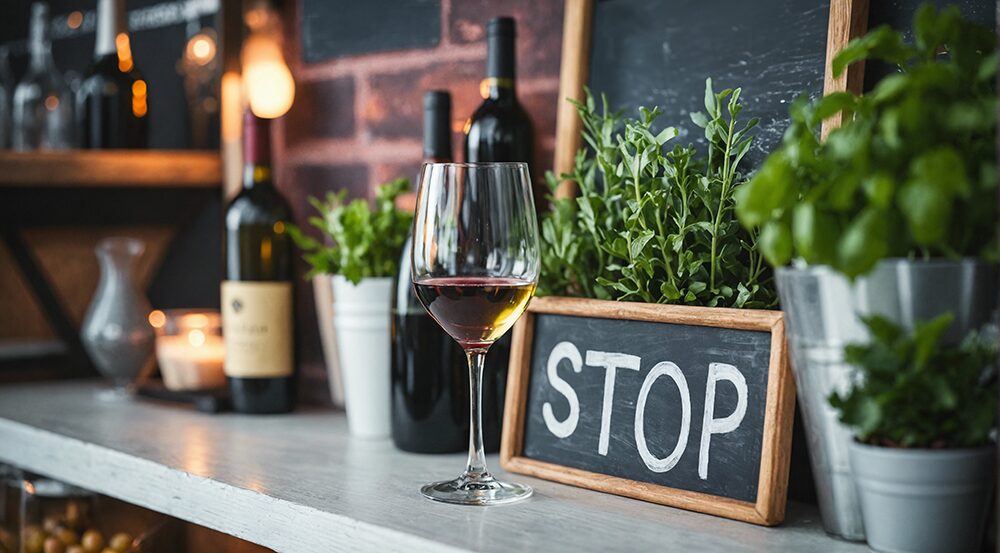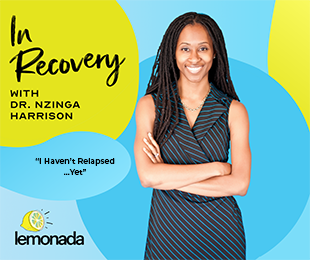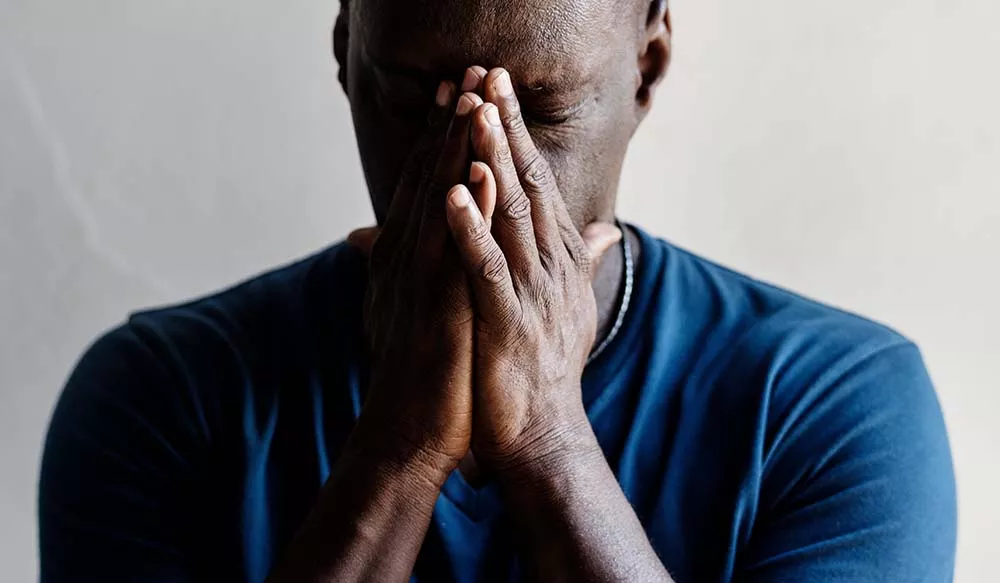Alcohol addiction, also known as alcohol use disorder (AUD), is a chronic condition that can impact nearly every aspect of a person’s life, physically, mentally, and emotionally. Many people struggling with AUD want to stop drinking, but the idea of quitting can feel overwhelming, especially with the challenges of withdrawal and persistent cravings.
The good news is that recovery is possible, and there are many ways to manage both the process of quitting safely and the cravings that follow.
When you consuHow Cravings Work In the Brainme alcohol, it triggers the release of dopamine, a chemical in the brain responsible for feelings of pleasure and reward. Over time, your brain associates these pleasurable sensations with the act of drinking, leading to cravings whenever you encounter cues or situations linked to alcohol consumption.
Alcohol can also act on other receptors in the brain, including serotonin, opioid, and gamma-aminobutyric acid (GABA) receptors, which improve mood and anxiety symptoms in the short term but lead to a chemical imbalance over time. This imbalance can contribute to worsened anxiety and depression. It can intensify cravings and make it more challenging to resist the urge to drink.
Triggers are people, places, emotions, or situations that can increase the urge or craving to drink. Identifying and understanding your personal triggers is crucial for developing effective coping strategies and preventing relapse.
Common triggers may include:
Keep a journal or use a mobile app to track your triggers and the circumstances surrounding them. This awareness can help you and your therapist develop personalized strategies to manage or avoid these triggers in the future.
Overcoming alcohol addiction on your own can be extremely challenging and, in some cases, life-threatening. By seeking professional help, you increase your chances of achieving and maintaining long-term sobriety while minimizing the risks associated with alcohol withdrawal and relapse. Healthcare professionals, addiction specialists, and counselors can provide you with the necessary support, guidance, and resources to navigate the complexities of quitting alcohol safely.
Professionals can:
It is strongly recommended to seek professional help for a medically supervised detox. Healthcare professionals can provide medications to alleviate withdrawal symptoms and monitor your progress to ensure your safety.
Attempting to detox from alcohol on your own, especially if you have been drinking heavily or for an extended period, can lead to severe withdrawal symptoms, including:
These symptoms can be life-threatening without proper medical care. Seeking professional help for detox can significantly increase your chances of a safe and successful recovery.

Many individuals with addiction use drinking as a way to cope with stress, anxiety, or depression. Developing healthy alternative coping mechanisms is crucial for maintaining sobriety and promoting overall well-being. These strategies can help manage stress, emotions, and cravings in a constructive way.
Effective coping mechanisms include:
Physical and Mental Well-being:
Emotional and Social Support:
Stress Management Techniques:
Additionally, maintaining proper nutrition can help stabilize mood and reduce cravings. Focus on eating regular, balanced meals rich in whole foods, fruits, vegetables, and lean proteins. Staying well-hydrated is also essential, as dehydration can intensify cravings and withdrawal symptoms.
Experiment with different coping strategies and find what works best for you. Incorporating these healthy habits into your daily routine can provide a sense of purpose, fulfillment, and emotional balance.
Relapse is a common occurrence in the recovery process, but it does not have to derail your progress. Creating a relapse prevention plan can help you identify potential triggers, develop coping strategies, and establish a course of action in case of a lapse or relapse.
Your relapse prevention plan should include:
Remember that relapse prevention is an ongoing process, and it’s important to regularly review and update your plan as you progress in your recovery journey. Working with your healthcare provider or counselor can help ensure your plan remains effective and aligned with your current needs.
Certain medications have been shown to be effective in reducing alcohol cravings and helping to maintain sobriety. These medications work by altering the brain’s response to alcohol or producing unpleasant effects when alcohol is consumed, deterring further drinking.
These medications are usually prescribed as part of MAT (Medication Assisted Treatment), also called Medication for Alcohol Use Disorder (MAUD), which combines prescription drugs with therapy to help people overcome substance abuse issues. Medication helps manage uncomfortable symptoms while you focus on getting better.
Medications used to treat alcohol use disorder include:
Eleanor Health offers a wide variety of options for medications to treat substance use and will work with you to determine the best medication and dosage that fits your lifestyle.
Several evidence-based therapeutic approaches can effectively treat alcohol addiction and address underlying mental health issues. Each type of therapy offers unique benefits:
Cognitive Behavioral Therapy (CBT) helps you understand and change patterns of thinking and behaviors that contribute to alcohol use. Your counselor will work with you to:
Dialectical Behavior Therapy (DBT) combines CBT techniques with mindfulness, focusing on:
Motivational Interviewing (MI) helps strengthen your commitment to change by:
Family Therapy addresses the impact of alcohol use on relationships and can:
Counseling provides a safe, judgment-free space to work through these approaches while addressing your unique challenges. Your therapist will help you select the most appropriate therapeutic methods for your situation and goals.
Peer support is a vital component of successful recovery, connecting you with trained Community Recovery Partners who have personal experience with addiction and recovery. These certified specialists provide unique insights and support that complement traditional treatment approaches like therapy and medication.
Working with a peer support specialist offers several key benefits:
Peer support has been shown to significantly reduce relapse rates and improve overall recovery outcomes. Having someone who has successfully navigated their own recovery journey can provide hope, practical strategies, and the emotional support needed during challenging times. This evidence-based approach helps address common challenges in recovery, such as isolation, stress management, and maintaining motivation for long-term sobriety.
Will Alcohol Cravings Go Away?
Cravings can persist for some time, even after achieving sobriety. However, with consistent effort and the implementation of effective coping strategies, the intensity and frequency of cravings often diminish over time. Recovery is a journey, and setbacks or occasional cravings do not negate the progress you’ve made. By staying committed to your goals and seeking support when needed, you can develop the resilience and skills necessary to manage cravings effectively.
If you or a loved one is struggling with alcohol addiction and cravings, consider reaching out to Eleanor Health. As recovery specialists, we are ready to help you or your loved one get better, no matter where you are on your journey.
Can you stop drinking cold turkey?
While it is possible to stop drinking alcohol “cold turkey” (abruptly and without any medical assistance), it is generally not recommended due to the potential risks and dangers associated with alcohol withdrawal. Alcohol is a central nervous system depressant substance, and sudden cessation can lead to severe and potentially life-threatening withdrawal symptoms, such as seizures, delirium tremens (DTs), and even death in extreme cases.
It is strongly advised to seek professional medical help and undergo a supervised detoxification process to quit drinking alcohol safely. Medical professionals can provide medications and support to manage withdrawal symptoms and ensure a safe and comfortable detoxification experience.
How to help someone stop drinking?
If you have a loved one struggling with alcohol addiction, there are several ways you can provide support and encouragement to help them stop drinking:
Remember, while you can offer encouragement and support, the decision to stop drinking ultimately lies with your loved one. Respect their autonomy and be prepared to provide ongoing support as they navigate the challenges of recovery.
If you or a loved one is struggling with alcohol addiction, consider reaching out to Eleanor Health. As recovery specialists, we are here to provide guidance, support, and resources to help you move forward, no matter where you are on your journey.
 How to Curb Alcohol Cravings
How to Curb Alcohol Cravings
 I Haven’t Relapsed…Yet [Podcast]
I Haven’t Relapsed…Yet [Podcast]
 The Link Between Anxiety and Alcohol
The Link Between Anxiety and Alcohol